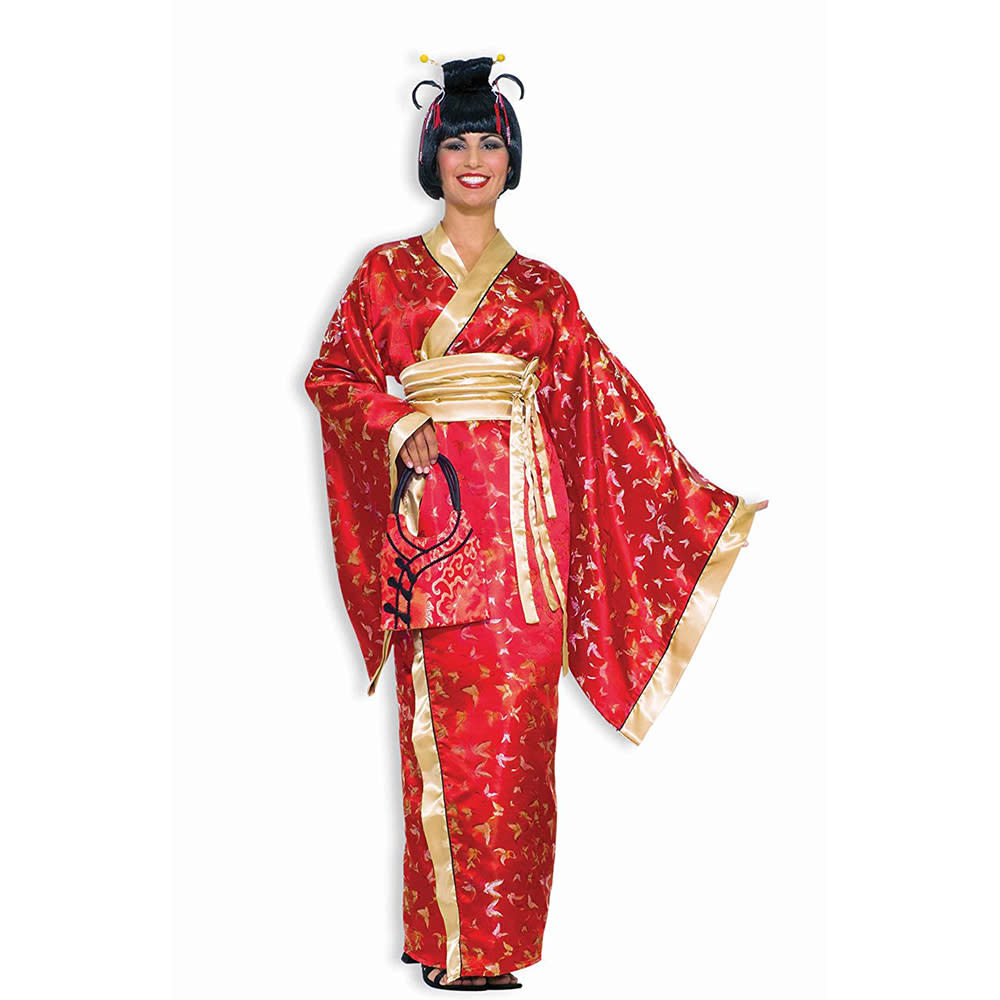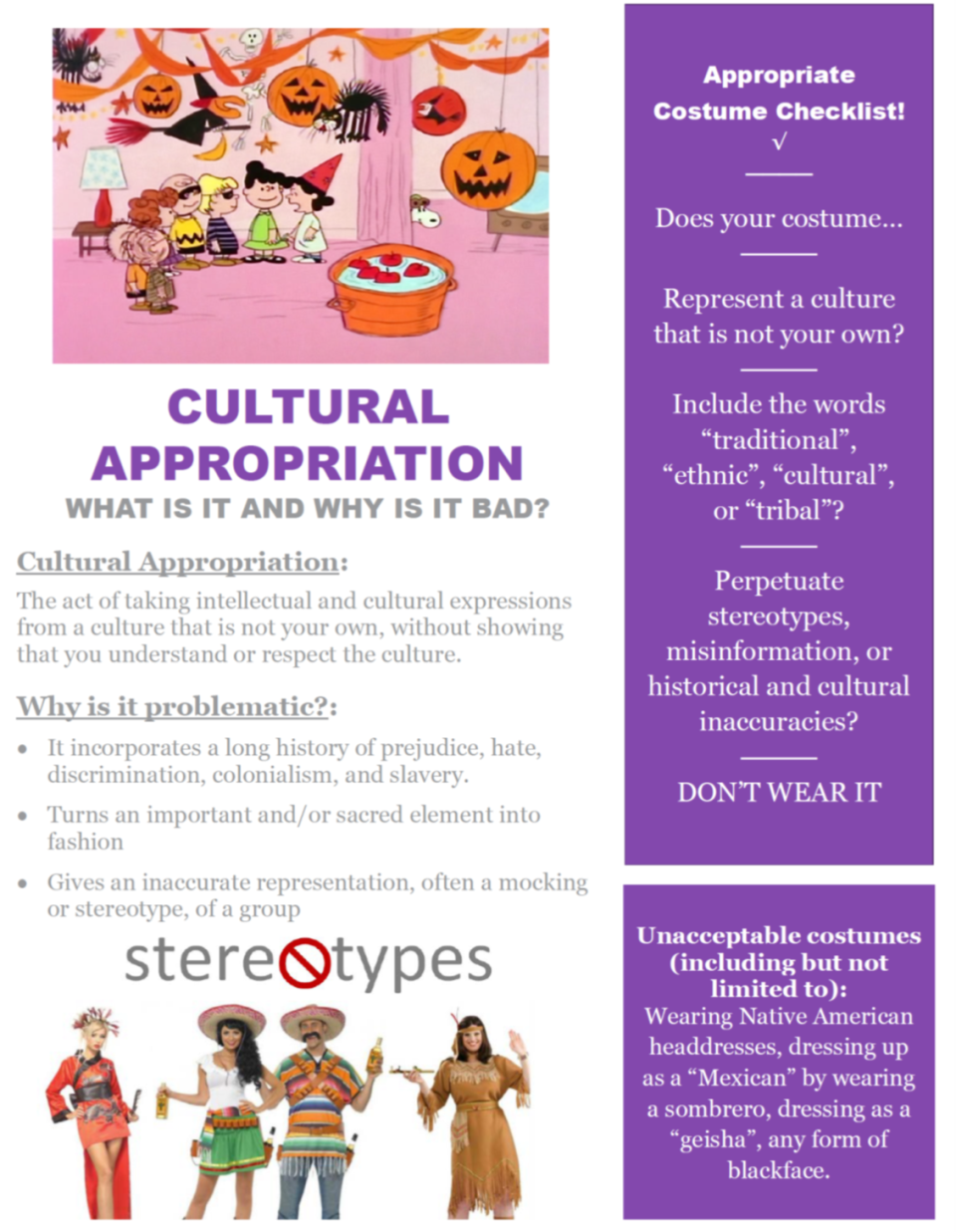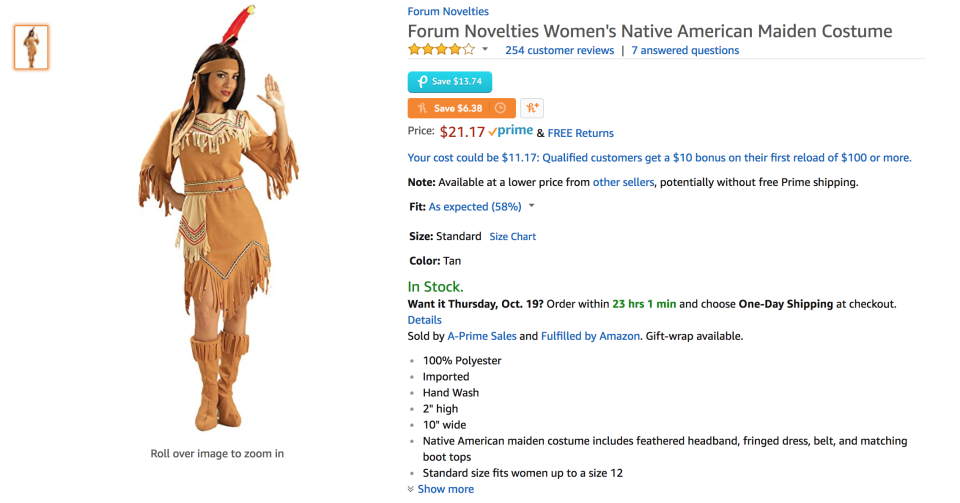Colleges issue Halloween costume rules: No headdresses, sombreros, or blackface

Colleges across the country are issuing strict dress codes for Halloween: No sombreros, geisha outfits, or Pocahontas costumes.
The spate of guidelines aims to stop cultural appropriation, which runs rampant during the Halloween season and seems to get worse each year. This week, in fact, a website called Halloween Costumes yanked an Anne Frank children’s costume consisting of a blue WWII-style dress with the caption, “Now your child can play the role of a World War II hero with this girls’ World War II costume” and “We can always learn from the struggles of history” after social media outcry.
Halloween retailer pulls Anne Frank costume amid complaints https://t.co/tpgcoVVMRB pic.twitter.com/Flx3UzXM6Q
— KSNV News 3 (@News3LV) October 17, 2017
Some examples, as outlined by The College Fix: St. Thomas University in Minnesota distributed a flier outlining “unacceptable” costumes that included, “Wearing Native American headdresses, dressing up as a ‘Mexican’ by wearing a sombrero, dressing as a ‘geisha,’ any form of blackface.”

On Sunday, Princeton University in New Jersey is holding a seminar to “engage in a dialogue about the impact of cultural appropriation, Halloween, and why culture is not a costume.”

At the University of Utah, a newsletter from the Student Affairs Diversity Council outlined tips for avoiding offenses, while name-checking Kylie Jenner as a example of what not to do: “Think to yourself: Does the actual name on the costume packaging say ‘tribal,’ or ‘traditional’? Does the costume include race-related hair or accessories (dreads/locs, afros, cornrows, a headdress)? Does the costume play into racial stereotypes? Does this costume represent a culture that is not my own? If you answered yes to any of these questions, you should rethink the costume and try again.”
And 1870, Ohio State University’s student-run magazine, published a flow chart titled “Is your costume racist?” with questions such as “Does it validate white supremacists?” “Does it poke fun at a recent national or international tragedy?” And, “Does it humanize inhumane people?”
Is your costume racist?
Sadly, I think this is real. pic.twitter.com/asvQhLC2Gy
— ClownWorldKing (@ClownWorldKing) October 14, 2017
The above universities did not return Yahoo Lifestyle’s request for comment. However, earlier this month, Neal Lester, an English professor at Arizona State University who runs a yearly symposium on cultural appropriation, told UpRoxx, “Cultural appropriation is taking and reducing a particular culture, even if you do think you appreciate it, to something that’s entertainment or mockery or ‘cool’ or something to be worn as a fashion.”
Explaining how dreadlocks are often sold at Halloween stores, Lester added, “The issue is — why is it being done? If, for example, there are folks who are not being hired for jobs or people who are being fired from their jobs because of dreadlocks, cornrows or other more Afrocentric hairstyles, then you have to look at why you feel like that is something you need to appropriate.”
He also draws a line between appropriation and appreciation, telling UpRoxx, “You can appreciate another’s culture without trying to be it or imitate it. Whenever you see someone’s culture and you decide you want to perform it, that’s when it becomes a problem. That has nothing to do with whether you appreciate it.”
Read more from Yahoo Lifestyle:
Girls are playing football — and being crowned homecoming queen
Popular makeup artist faces social media firing squad after Pennywise demo
Follow us on Instagram, Facebook, and Twitter for nonstop inspiration delivered fresh to your feed, every day.

